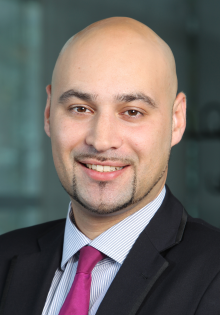Sustainable Lifecycle Engineering (SLE)
Duration: 01/06/2023 - 31/05/2026
Total funding volume: 4.98 million
University funding volume: 379,344.40
Sponsored by: Ministry of Economic Affairs, Industry, Climate Protection and Energy of the State of North Rhine-Westphalia, Project Management Jعlich, it's OWL
Initial situation
Nowadays, developers often lack suitable methods for designing and creating sustainable systems. Decision-making in the product development process, particularly with regard to sustainable options, is often characterised by uncertainty. The question of whether, for example, an electric motor should be encapsulated to minimise heat loss or whether encapsulation should be avoided to facilitate recycling raises important ecological and economic questions. In addition, it remains unclear which solution has the greatest CO2-saving effect. Against this background, the "Sustainable Lifecycle Engineering" (SLE) project was created with the aim of equipping developers and product managers with the necessary tools to take sustainability aspects into account at an early stage of the engineering process.
Objective:
The main objective of the Sustainable Lifecycle Engineering (SLE) project is to enable developers and product managers to systematically incorporate sustainability aspects into their decision making while designing complex systems. This is to be achieved through the development and implementation of methods and approaches based on Model-Based Systems Engineering (MBSE). Existing MBSE methods will be extended to include the dimension of sustainability, thereby integrating the consideration of ecological, social and economic aspects into the development process. The project's partnership promises interdisciplinary collaboration to bridge the gap between technological innovation and sustainability requirements. Ultimately, the SLE project aims to revolutionise the design of products and systems by focusing on sustainability from the outset, thus contributing to a more environmentally friendly and future-oriented development.
Project partners: Fraunhofer IEM, Diebold Nixdorf, HARTING, Miele, 365ĢåÓż_×ćĒņ±Č·ÖĶų£¤Ķ¶×¢Ö±²„¹ŁĶųmens, Wago, Wuppertal Institute


